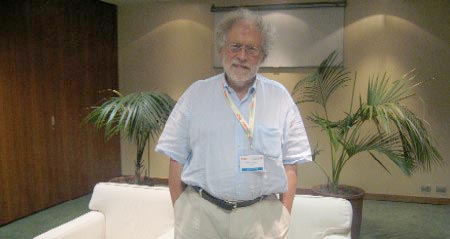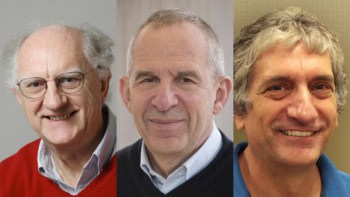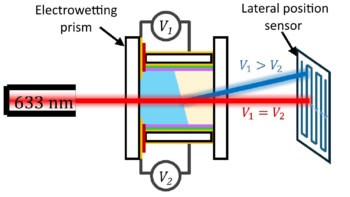Anton Zeilinger is the Austrian-born physicist who has dazzled over the past decade by teleporting quantum information over increasingly large distances. He is also a key player in the world of quantum computing, having pioneered a number of concepts for optical quantum computing. Physics World reporter James Dacey recently caught up with Zeilinger to discuss many things, including why Zeilinger is inspired by Einstein’s stubbornness, what he sees for the future of quantum mechanics, and why he thinks children should be exposed to quantum concepts from an early age.

Within the quantum community, you’re viewed as someone who always looks to push the limits and to test things that other people wouldn’t. Would you agree with that?
Even in the most basic sciences you cannot work without bold attempts taking risks. You have to be open, you have to be challenging – this is the interesting stuff. I wouldn’t like to look at science as just one more step here or one more step there.
But do you think this is always possible for scientists to take this view when they have other things to worry about things like getting their next research grant?
Well, some of that is true. But much of it is self-imposed. We can see that too often scientists are conservative and sometimes even emotionally against what they perceive as speculation. The really new in science cannot be logical consequences of what we know already… that would just be the next logical step. I don’t want to belittle the more down-to-earth approach in the sciences but I find it more interesting to ask bold new questions
Do you take inspiration from certain scientists?
We can see that too often scientists are conservative and sometimes even emotionally against what they perceive as speculation.
Einstein is very inspiring – especially in the way he was stubborn. He had his opinion about quantum mechanics, which – in its consequences – turned out to be wrong. There’s no question about that. But he stood up for it because he believed in it. This kind of stubbornness is important in science because sometimes it is the others who are wrong. And sometimes even wrong positions can lead to something important. Einstein’s criticism of quantum physics inspired foundational research, which opened up the road toward quantum information and quantum computation.
What do you predict for the future of quantum mechanics as a theory?
We will find that quantum mechanics underpins much more than we realize today. To take the next steps will be a big challenge: it’s very difficult, and it cannot be found by looking at the theory. The theory may be so strong, be absolutely correct, be fantastically beautiful [pauses] but there must be something beyond – the question is where?
So how do you approach that question? Is it purely through thought experiments or is there a more practical way?
Well, one thing is to make sure that all the puzzles and paradoxes that people predict are really there in the laboratory and that people stop developing concepts that might allow them to avoid these things.
The theory will not break down in directions where people want quantum mechanics to break down. For instance, it is not in the direction of large macroscopic bodies. But it could be in the direction of quantum gravity. People have tried to quantize gravity now for 80 years, since the 1930s. Some of the brightest minds of our civilization have tried it unsuccessfully. That shows me that maybe we are somehow fundamentally not asking the right questions.
How about quantum computing – when do you think we’ll see machines that can perform useful calculations?
Well, of course, it is very difficult to predict. But it may well provide a path going beyond the limitations of Moore’s law [which describes how the number of transistors that can be placed on an integrated circuit has doubled approximately every two years}. For quantum computing, it will depend on the number of qubits we can handle in experiments. Most people say we need about 40–50 to have an interesting quantum computer. Now, we are at the level of about 10, with ion quantum computing, so it should take 15–20 years. It’s not so bad; we’re not so far away.
Can you tell me about your own research in quantum computing?
We are working on optical quantum computing, which works with photons only. The problem with photons is that they are so fast. They only appear in the apparatus for a very short time – a few nanoseconds – and so you have to be extremely fast in handling them. And at present we don’t have the detectors with a high enough efficiency to handle the photons. But in principle, optical quantum computing can be universal.
You’ve said before that it excites you to think of a mobile phone with an in-built quantum computer. What other potential applications do you want to see?
In my lifetime I have seen things that are mind-boggling.
I said this partly tongue-in-cheek in the hope to encourage young people to have courageous minds. You have to set goals that are wildly ambitious. The point is that completely new technologies will emerge that we never predicted. Look at the laser. When it was invented [50 years ago] nobody predicted the two most common applications we see today – the CD player and the supermarket scanner. Nobody predicted this – that’s the way it always works.
But you enjoy new gadgets?
In my lifetime I have seen things that are mind-boggling. I still remember the day we saw our first scientific calculator at our institute – it must have been 25–30 years ago, or something like that. There were a group of us who sat there all afternoon punching in calculations and we were completely excited by this.
I love to have the most recent gimmicks. I have already put in an order for the iPhone 4 [Zeilinger also owns an iPad]. I just like to play with these things, even when I know I will use just a small subsection of all the possibilities.
You’ve also said that you would like children to be exposed to quantum mechanics from a young age. How?
I’ve kept saying this for many years and I think I should just do it. I want to meet people who are good at this kind of thing who would help me to expose children very early to quantum physics. You clearly cannot tell them about quantum states and Hilbert space, but a possible way to do it would be to have quantum phenomena simulated on a computer. It could be a game that works according to the rules of quantum mechanics, not according to the rules of classical mechanics. And we could see if the children are able to play with it, not knowing what is behind it.
Or I was thinking of simply showing them phenomena on the computer, like a mock-up of very simple experiments. Maybe if the children play with this they can develop a different kind of intuition.
Further reading
“A quantum renaissance” by Markus Aspelmeyer and Anton Zeilinger
“Probing the limits of the quantum world” by Markus Arndt, Anton Zeilinger and Klaus Hornberger



